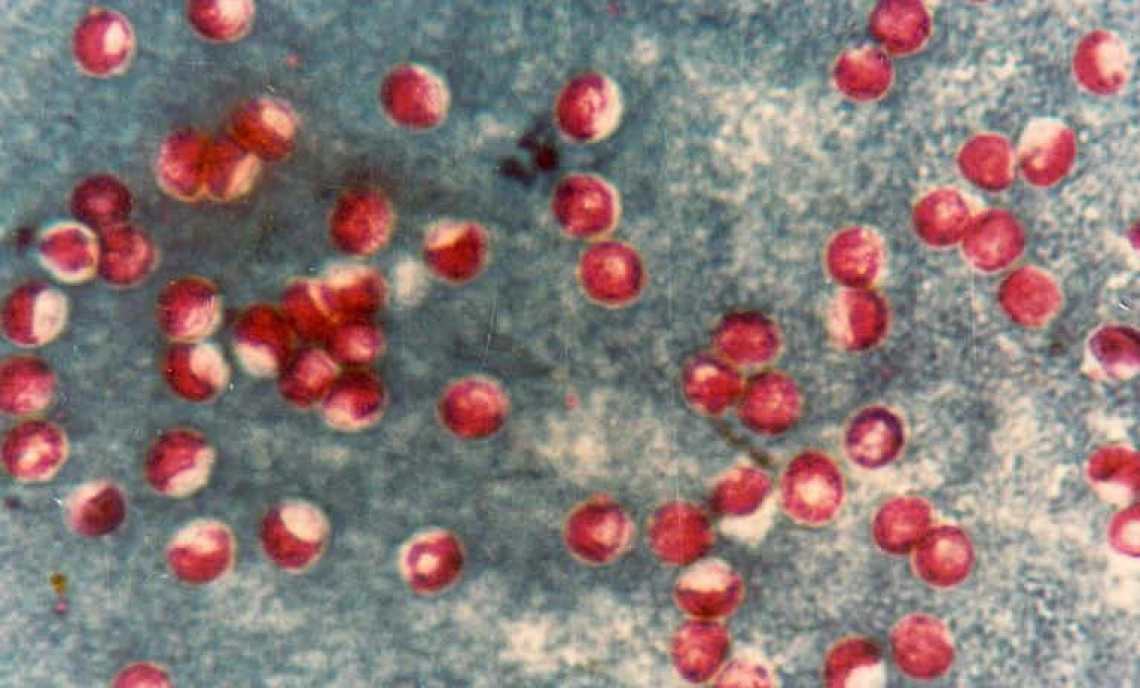Tech Blog: UA Professor’s Development of Antibodies Means New Alternative for Detection of Cryptosporidium

Cryptosporidium is a protozoan parasite that lives in the intestine and is a major cause of moderate-to-severe diarrhea in humans and livestock worldwide [1]. Both the organism and the disease it causes (Cryptosporidiosis) are known as “Crypto” for short [2]. The spread of Crypto occurs when “shedding” begins and millions of Crypto parasites are released via each bowel movement. Crypto is often found in food, water, soil, and other surfaces contaminated by feces from infected humans or animals, with infection occurring following the swallowing of the parasite [1]. Symptoms, which include watery diarrhea, stomach cramps, nausea, vomiting, dehydration, fever, and weight loss, typically occur within 2-10 days of infection and can last for up to 30 days [3]. Although Crypto occurs worldwide, those traveling to developing countries may have a greater risk of infection due to poorer water treatment and food sanitation. It is estimated that in the United States alone, around 748,000 cases of Crypto occur each year but less than 2% of cases are reported [4]. In 2010, 99,800 cases of Crypto were fatal worldwide.
Current means of detecting and diagnosing Crypto present many challenges including cost, performance, clinical significance, and assessment of co-infection with other pathogens. In addition, the use of a wide variety of diagnostic methods ranging from microscopy to polymerase chain reactions (PCR), and the inconsistent application of techniques, makes it difficult to compare results from clinical and veterinary studies. While microscopy requires simple instrumentation and inexpensive consumables, the process is laborious and lacks sensitivity and specificity. Molecular methods of detection like PCR can be used in reference diagnostic labs to identify Cryptosporidium at the species level however, testing for the parasite is not routine in most laboratories.
Michael Riggs, DVM, PhD, DACVP, professor of animal and comparative biomedical sciences in the College of Agriculture and Life Sciences at the University of Arizona, has developed monoclonal antibodies capable of detecting Cryptosporidium antigens.
Dr. Riggs’ laboratory research concentrates on characterizing immune responses to Cryptosporidium, with a focus on the development of recombinant vaccines, immunotherapies and drug discovery for cryptosporidiosis, and improved methods for diagnosis. Riggs’ research in the area was foundational to the development of these novel monoclonal antibodies.
The antibodies, which have a broad range of research and development applications, offer the opportunity for the development of a rapid, highly sensitive diagnostic test capable of simultaneously detecting multiple causative agents of crypto.
To learn more about this technology, which is available for licensing, please visit http://inventions.arizona.edu/technologies/ua09-068_monoclonal-antibodies-useful-for-the-detection-of-cryptosporidiosis.
To learn more about other available antibody-related technologies from Tech Launch Arizona, check out these inventions:
- Monoclonal Anticytokeratin Antibody (Ka2) (UA04-016)
- Mouse Hybridoma Cell Line Producing IgG Monoclonal Antibody (2C4) Specific for Taura Syndrome Virus (Tsv) of Penaeid Shrimp (UA09-007)
References:
[1] Sources of Infection & Risk Factors. (2015, April 01). Retrieved October 21, 2016, from https://www.cdc.gov/parasites/crypto/infection-sources.html(link is external)
[2] Parasites - Cryptosporidium (also known as "Crypto ... (2015, August 05). Retrieved October 21, 2016, from http://www.cdc.gov/parasites/crypto/index.html(link is external)
[3] Illness & Symptoms. (2015, February 20). Retrieved October 21, 2016, from https://www.cdc.gov/parasites/crypto/illness.html(link is external)
[4] Burger, MD, S. (2016). Cryptosporidiosis: Global Status (2016 ed.). Los Angeles, CA: GIDEON Informatics.
Image: By Alae-eddine GATI (Own work) [GFDL (http://www.gnu.org/copyleft/fdl.html(link is external)) or CC BY-SA 3.0 (http://creativecommons.org/licenses/by-sa/3.0(link is external))], via Wikimedia Commons

